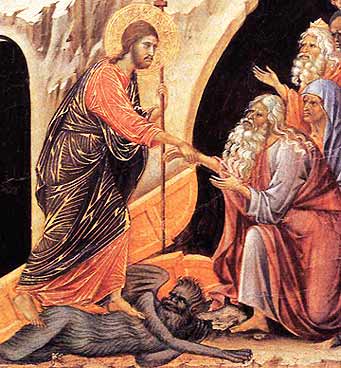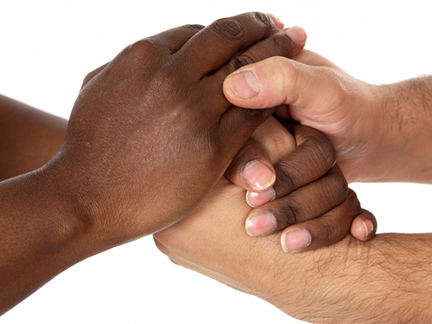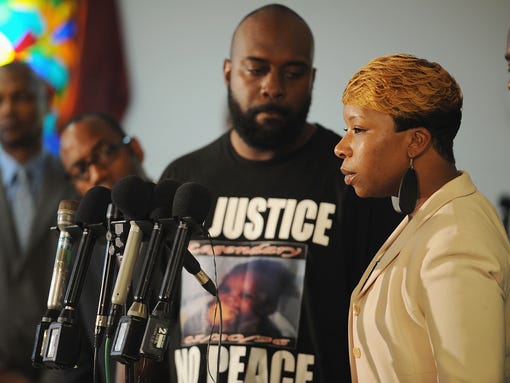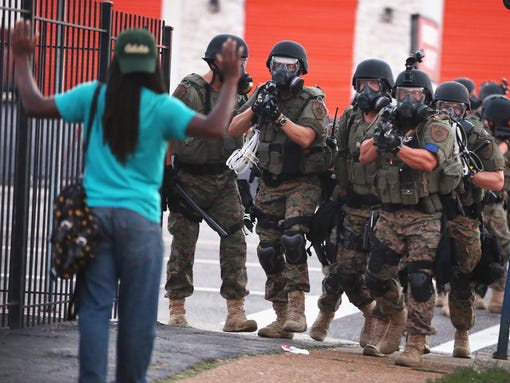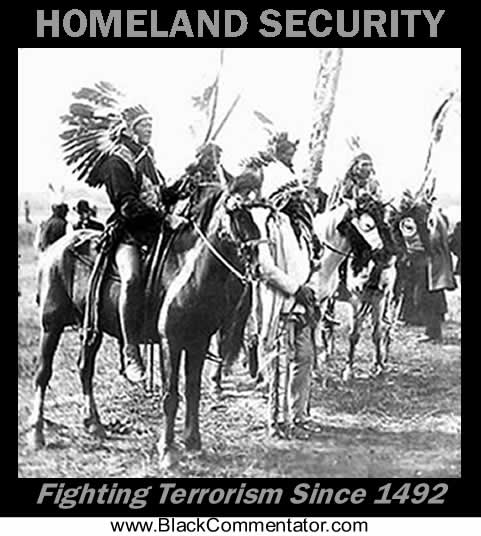I finally saw “Noah” in theaters this weekend. I know there
have been countless articles and blog posts about the movie already, but here
are a few my thoughts. [Spoiler alert]
First, one of my hopes going into this movie was that seeing
an interpretation of the story that relies heavily on extra-biblical sources might
“break open” our own interpretation of the Noah story and help us see new
aspects of it we may have missed before. Here are some ways in which I felt the
movie succeeded.
1. I was reminded of the theme in Genesis 1-11 that
cities are bad.
In the movie, the line of Cain develops industrialized
cities and civilizations. This is portrayed negatively in the film as these
cities end up destroying God’s good creation. Interestingly enough, in Gen.
1-11 we also find cities portrayed negatively. In the genealogies of Cain and
Seth (
Gen. 4-5) the only cities mentioned are in the fallen line of Cain. In
fact, the first comment about Cain besides the fact that he gained a son is
that he “built a city” (
4:17). Likewise, in the post-flood world, the only
cities mentioned are in connection with the fallen line of Ham. Eventually, the
evil city-building finds its climax in the story of the Tower of Babel (“Come,
let us build for ourselves a city, and a tower” in 11:4). God deals with this
sin by “scattering” the people.
This common theme should force us to look closer at the
biblical text. Why does Gen. 1-11 depict cities as a challenge to God? The
movie claims that such industrialization destroys the good earth. While this
may be true today, it probably was not the main issue for the writer of
Genesis. This is a import from our modern culture. Rather, in Genesis the
problem is that God twice commands humans to “multiply” and “fill the earth”—once
after Creation and once after the flood. Gathering in cities rather than
scattering across the earth is direct disobedience of this command. In Genesis,
cities are not inherently evil, but only evil in so far as they are built in
opposition to the decrees of God.
2. Which brings us to the matter of ecology
Many Christians have critiqued the movie because the
director depicts Noah as an ancient environmentalist. I agree insofar as saying
that the strong emphasis on environmental issues has been imported into the
text from our modern world. However, at least the writers and director are
conscious of this imposition. Many Christian movies about the Bible have been
made with little knowledge or awareness that their storytelling is also an
interpretation influenced by their cultural biases.
That being said, perhaps we need an ecological reading of
Genesis 1-11. American Christians have been far too dualistic in the past when
it comes to thinking about the earth. Faulty thinking about the afterlife has
taught many of us that we simply go to heaven when we die, so ecological
endeavors are pointless. This world is going to burn after all, right? But if
we remember that the Bible teaches resurrection—an affirmation of God’s good
creation—then suddenly we must be more conscious of our earthly actions. God
created the world and called it “good.” Why would he throw His masterpiece into
the trash in the end?
Hopefully this movie refocuses our attention on
Gen. 2:15
where God commands the man to “cultivate and protect” the garden. Creation does
not exist simply for our own benefit. We are co-creators tasked with overseeing
and being good stewards of God’s created world.
Maybe
Noah will
also help us expand our vision of salvation. God’s salvation through Jesus is
not just about “saving souls.” It is about redeeming all of God’s good
creation. Paul says in Romans that all creation “groans” and “waits for the
sons of God to be revealed” (
Rom 8:18-25). Paul says all the earth (animals and
plants included) has been cursed because of our sin. Therefore, God’s ultimate
plan for salvation includes redeeming and restoring that good creation. In that
light, Russell Crowe’s Noah doesn’t sound all that unbiblical.
Perhaps another reason many Christians got up in arms about
the film was that this is not a “safe for the whole family” story. We sometimes
have a bad knack of taming down the rough patches in the Bible. I remember
watching an atheist rant on a
YouTube video about a baby’s bible. He pointed
out that key biblical stories, like Noah, David/Goliath, and the Crucifixion,
completely omitted the ugly parts. For example, few children’s Bibles talk
about (or illustrate) why Noah got to go on a fun wooden cruise with zoo
animals.
Now, I’m not for destroying the innocence of children too
quickly (another theme of the movie ironically), but I do think this same
thinking affects us as adults. Have we as adult Christians truly pondered the
dark places of the Bible? Or, are we still stuck in Kindergarten Sunday School
mode? Do we think of rainbows and zoo animals when we hear Noah’s name, or do
we think of the devastation of the world and the massive loss of human life
that was the result of sin?
This new movie forces us to come face to face with the
ugliness of sin and the tragedy it causes in the biblical story. One of the
most haunting images of the film was a picture of the final surviving humans
clinging to the last dry land of a mountain. Noah’s family hears the victims crying
out, and then we see them, futilely clawing past each other like zombies to escape
their fate. It reminded me that this too is in the story of Noah. While the
text may not spell it out, have we seriously considered the line “All flesh
that moved on the earth perished, birds and cattle and beasts and every
swarming thing that swarms upon the earth,
and all mankind” (
7:21)?
In reading the critical reviews of the film, one thing that
kept coming up over and over again was Noah’s “homicidal” character. How could
any film-maker portray Noah as a person ready to kill his own granddaughter?
More on this in the next point. However, by the end of the film, Noah shows
mercy and chooses love. With that in mind, I think Christian critics completely
missed another way they could have attacked the movie’s depiction of Noah (probably
because many critics hadn’t even seen the movie when they started throwing
accusations).
Toward the end of the film we get an interpretation of Noah’s
drunken nakedness (which is
in the Bible by the way). In the biblical text, Ham
sees Noah’s nakedness, but does not cover his father. Instead, he tells his
brothers who in turn cover Noah (just as in the movie). It is at this point
that the film diverges from the text. In the movie Noah is grieved over Ham’s
actions, but still offers a blessing for Ham in the final scene. This has the
effect of us ending with a “good” Noah in the film. No longer is Noah a homicidal
maniac, but a good patriarch. Meanwhile, in the Bible there is a total break
between Ham and Noah. In the Bible,
Noah curses Ham and his descendants. There
is no ooey-gooey family love here. If the movie’s portrayal of the biblical
Noah is to be critiqued, we should really critique it on its sugar-coating of
the family dynamics at the end. But, like us Christians, we can easily turn
family into an idol that comes before faithfulness.
One final area many Christians were dissatisfied with was
the cinematic Noah’s willingness to let humanity die out. Some Christian
critics pointed to Gen. 1 to remind us that humans were made in God’s image. We
are more valuable than animals, so of course the ark was to save humans, not
creation. As above, perhaps we do think a little too highly of ourselves when
it comes to salvation. Nonetheless, this question—Is humanity worth saving?—is a
central theme of the movie. And, I think it is a good (and perhaps biblical) theme.
One of my friends pointed out to me that Noah’s “offering”
to God and the rainbow scene are misplaced in the film. The order of Noah’s drunkenness
and the offering/rainbow scene are reversed in the movie from its
biblical order. In the Bible, the last major detail we hear about Noah is his wine
debacle. This scene serves almost as a second Fall for the second creation. If
you thought humans had escaped sin, you were wrong. And very quickly, sin once
again escalates as we read genealogies of Israel’s enemies and hear the story
of Babel. Even restarting humanity was not enough to get humans on the right
track. By the time we arrive at Genesis 11, the reader should be asking, “Is
there any hope? How can the cycle of sin and death ever be broken?”
This is essentially the question Noah wrestles with in the
movie. He understands very correctly that evil runs through all of us. Too
often we want to say with Noah’s wife that we are good people. The evil ones
are “them.” But as Crowe’s Noah points out in the film, all of us are tainted
by sin. None of us is good. (Isn’t this the starting point of our understanding
of the Gospel.) Therefore, I can sympathize with Noah as he contemplates
cutting off humanity’s future. If humans can’t escape sin and evil, maybe they
should just die off to fulfill God’s command to “protect” creation (
Gen. 2:15).
Yet, the film pushes us between alternate extremes. While
Noah stresses human sinfulness (which is true), others including Tubal-Cain
emphasize humanity as the valued “image of God” (which is also true). And both
are in Genesis.
Genesis 1 stresses that humans are the pinnacle of creation and
are to “rule over” creation. But, then
Genesis 2 places humans alongside the
rest of the created order and also calls us to “protect” the garden of God. The
beauty of the film is that is forces us to consider both sides and struggle to
find the healthy middle ground between mercy and justice and between creation
abuse and creation worship.
----------------------
I know this is a very long post and that I probably should
have made at least two posts, but I need to type this while it is still fresh
in my mind. So, if you’ve read this far, bear with me for two more quick
points.
Another theme I loved concerned the silence of God. In one
provocative scene, the villain Tubal-Cain cries out to the Creator asking him
to speak. He desires God to end the silence, but there is no answer. A little
later in the film, Noah pleads to God to help him decide what to do about his
pregnant daughter-in-law. But instead of an answer, the sky clouds up more and Noah
is met with silence.
This theme resonated with me because I have often had to
deal with the silence of God. There have been times in my life when, like
Tubal-Cain, I have shouted out, “Why don’t you answer?!” The film makes me ask
about how to respond when it seems like God does not. This is a tough question
worthy of another post, but I think a good question we Christians should take
more seriously.
Second, at the end of the movie I couldn’t help but think
how our current evangelical obsession with biblical literalism has caused us to
miss some amazing opportunities. Once the credits began to roll, I heard one
man in front of me (presumably a Christian) remark to his wife, “Well that was
funny wasn’t it?” My first reaction was to wonder if we had even watched the
same movie. Yes, a movie filled with violence, slavery, murder, contemplated
infanticide, strained parent-child relations, and the death of thousands is “funny.”
While I shed a few tears, all he could say at the end was that it was “funny.”
Of course, I knew what he was implying—the movie was not “biblically
accurate.” It was “funny” to him because this Noah was nothing like the Noah he
envisions when he reads Genesis. This is the attitude I think that drove almost
all of the negative Christian reviews. My reply to that is simply, “Yes, it is ‘biblically
inaccurate,’ but let’s get over it.”
Does a story have to be exactly what is contained in the
Bible for it to carry truth? Even then, when it comes to the extra-biblical
material, how do we really even know it couldn’t have been similar to the Bible’s
contention? While the movie did contain some really off-the-wall moments (rock
giants, anyone?) I have also heard some pretty off-the-wall ideas from
conservative Christians when it comes to Genesis (such as a “firmament” of
water surrounding the earth and peculiar views of the Nephilim that go way
beyond anything the Bible says). The bottom line is there is much about the
world of Gen. 1-11 we simply don’t know and never will.
With that being said, we need to view this movie as a work
of art, not an attempt to recreate a historical account of how the Noah story
actually might have happened. If we can get beyond the biblical “inaccuracies”
(while not ignoring them) and really dig into the themes, we may find that this
movie contains some powerful truths and questions for us to ponder as
Bible-believing Christians.
Along that line, maybe we need to view the movie as a
Midrash of the flood narrative. In ancient Judaism, rabbis would often take
familiar Old Testament stories and add new twists or details in order to
deliver a new theological point. (For an interesting look at how this movie
employs some actual Jewish Midrash,
check out this article.) What do these new
(and yes, extra-biblical) details in the movie reveal about us as people and
about our culture? What truths and questions do the themes push us toward? Does
the movie allow us to rediscover truths in Genesis that we have overlooked for
too long?
In the end, I don’t believe this movie is an attack on
Christians or even on the Bible. There will certainly biblically illiterate
people who will think this is all in the Bible, and we should gently point them
to the actual story. But for the rest of us, maybe we can step back and learn
something from a movie that was very intentionally and artfully constructed.
Or, if you can’t do that, at least go see it to make fun of some rock giants.
*If you aren’t sick of reading yet, you may also
check out this article containing an interview with one of the writers.







